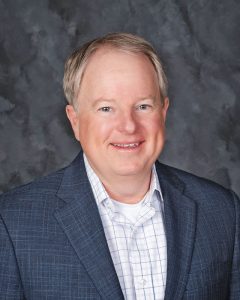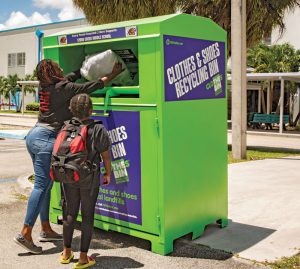
Mason Myers recently spoke to Textile World about investments in “pre-middle” market businesses and textile companies.
TW Special Report
Mason Myers is the founder and CEO of Jackson, Wyo.-based Greybull Stewardship, a private equity firm that focuses on investments in the “pre-middle”market. Myers defines this market as businesses with less than $5 million in profit.
Myers founded the business in 2010 with the goal of supporting these pre-middle market business owners and entrepreneurs to strengthen and scale their companies.“I’ve been involved in small businesses since my twenties,” Myers noted. “As a former small business owner myself, I see tremendous opportunity in this space to help these high potential businesses become stronger, bigger and better.”
Myers’ first business was an early Internet company he founded with a friend. The company eventually merged with another company and obtained $20 million in venture financing before going public. “We were acquiring smaller companies and, in doing so, discovered the abundance of overlooked, solid businesses that are too small for larger private equity firms,” Myers said. “The traditional venture capital model was not a good fit for their needs. I really love small businesses — I have lived the experiences, challenges and opportunities of these companies. It is so fun to support them because you can see the direct impact you’re having on the customers and employees by improving the businesses and helping them create tremendous value.”
Myers recently shared some insights on his investment strategies and recent textile industry investments with Textile World.
TW: What makes a company attractive as an investment? What parameters attract you?
Myers: The most important factor we look for in companies is an attractive business model and the potential to grow and become a solid larger company — whether their business has strong bones. That strong foundation and opportunity for scale are what Greybull is here to support. To us, an attractive business model is recurring or highly repeating revenue, has attractive margins and a business that can scale without requiring a lot of additional capital for working capital or capital expenditures.
Our team is comprised of many functional experts who came from these types of businesses and have grown their own. They have the firsthand experience to help founders who may have never done something like this before.
For us, it’s about the people. First and foremost, we strive to build relationships with the owners and leaders of these companies, work with them to understand their visions and then collaborate and leverage our expertise to execute on that with their partnership.
TW: What drew you to explore textiles?
Myers: The textile industry is poised for major growth in the next few years, and we see exciting investment opportunities in the space. Issues of supply chain efficiency, manufacturing, sustainability and technological innovation continue to be top-of-mind for the industry.
The demand for innovation and push for a greener future creates opportunities for unique companies to fill whitespace and offer differentiated solutions. We have identified some small businesses with nuanced capabilities and forward-looking visions that focus on addressing customer needs. We’re keeping an eye on numerous developments in the space as the industry continues to evolve.
Our current investments in the space — Clothes Bin, Green Earth Cleaning and Reclaimed Textiles — have great potential for expansion in the industry. Through our partnerships with these companies, we get to tap into this dynamic market and be a part of the ongoing innovation.

TW: What textile-related investments has Greybull pursued?
Myers: Greybull first entered the textiles space in 2021 with our investment in Clothes Bin, a U.S.-based textile recycling franchisor that helps people conveniently recycle their clothes, shoes and textiles to make it easier to keep these materials out of landfills. Local franchises place bins at schools and other accessible locations and manage the collection of the items to recycle.
We acquired Green Earth Cleaning in 2022, a company that provides environmentally friendly solvent to dry cleaners around the world. The industry is moving away from petroleum-based solvents because Green Earth works better and is better for the environment.
We acquired Reclaimed Textiles Co. in 2023. Reclaimed Textiles repurposes a range of textile products to give them new life, promote sustainability and help address unique, evolving needs in the industry.
TW: As an investor, how do you see your role?
Myers: I see Greybull’s role as supporting the smaller pre-middle market business owners and founders to help their companies reach their maximum potentials. We have a long history of demonstrated success in this space — we know how to create value and avoid potential pitfalls. Our goal is to partner with business leaders to fully understand their operations, business practices and strategies to help them further strengthen their businesses and have a greater impact. Aligning with their visions enables us to effectively identify how we can best support and scale their businesses while maintaining their visions and core missions.
We have functional expertise in accounting, finance, strategy, technology, sales, marketing, planning, operations and more so that we can lend and apply our knowledge. Our involvement is also about the emotional investment of empowering owners, so they feel confident to work alongside us and take their businesses to the next level.
TW: How does Greybull’s pre-middle market investment strategy differ from more traditional private equity models, and why is this focus particularly valuable in the textiles and recycling sectors?
Myers: Our pre-middle market investing strategy focuses on smaller, growing businesses where we believe our team’s operational expertise and resources can have the greatest impact and value-add.
We use pre-middle market to mean businesses with revenues of $5 to $50 million and profits of less than $5 million — a segment of the market that is often overlooked and underserviced by traditional private equity. We see enormous value in this space, and there are many companies that fall in this category and do not have any capital focused on supporting them. This is the need that Greybull is stepping in to fill; we partner with these companies and help them grow and scale to the middle market.
For textiles specifically, we see particular opportunity to have a distinct impact. The pre-middle market includes companies that significantly benefit from operational, strategic, and financial guidance. We are able to make a noticeable impact in an industry that is evolving to be more green-focused.
With our expertise in textile recycling combined with our functional experts that know how to assist and support businesses of this size, we are the perfect partner for a company in this space that has potential to get to the next level.
TW: When do you enter and when do you exit an investment? What is the strategy to achieve an exit?
Myers: We enter when the company matches our investment criteria — revenues of $5 to $25 million, profit under $5 million — and has a proven and high-potential model with a clear opportunity to add value through operational improvements and capital injection. The business must show promising growth prospects with a need for our niche support capabilities.
While private equity investments typically have hold periods of around four years, the Greybull model is built around the idea that longer investments can create greater scale and position businesses to sustain growth in the long term. Our average hold period is approximately eight years, and we have held companies for up to 11 years. We see tremendous value in enabling these businesses to develop practices at a pace that will help them thrive long after our investment ends. An ownership change can be disruptive to the customers and employees, so we prefer a model where we provide stability over a long time horizon so that the company can focus on creating value in the business. We want to avoid unnecessary disruption wherever possible.
Most often, we will consider an exit when the management recommends that we do so. We do not like to bring arbitrary timelines and constraints to our companies, and we prefer to hold and allow the value creation to compound. We do not have a requirement to exit on any certain time-frame, and so we are motivated to focus on what is best for the business.
TW: With the textile recycling market expected to grow significantly by 2028, how do you see private equity playing a role in driving innovation and expansion in this space?
Myers: For every company, there comes a time when the opportunity is so big or attractive that the company needs additional expertise and capital to achieve its potential.That is where we step in.This is likely to happen more and more in the textile recycling market, and we will be there to support good companies with potential who want a collaborative partner along-side them as they pursue their maximum potential.
Although different from Greybull’s strategy, traditional private equity will also be there for businesses who want help with a quick flip of their company in three to five years.
Depending on the company, that strategy can be the right fit.

TW: Can you elaborate on Greybull’s long-term partnership with Clothes Bin?
Myers: To have a sustainable environmental impact, it is important to have strong systems and a sustainable business model. Clothes Bin was an excellent business for both the franchises in the system and the franchisor. We were able to make it even better and help them build the systems to scale the business, which makes the entire system and every franchise stronger.
As Clothes Bin becomes larger, it is easier for the franchises and the company overall to partner with cities and states to have even more environmental impact. These entities want to help keep materials out of landfills and it is easier for them to engage with a larger company like Clothes Bin. In this way, Clothes Bin is able to impact environmental policy and more.
TW: What lessons from your work with Clothes Bin could apply to other growing businesses in the textile space?
Myers: We have experience growing textile businesses of this size and the specific knowledge of textile recycling and other environmentally friendly efforts and industries that can all help a growing good business with potential in this market.
One lesson is to work on the infrastructure of your business before you want to scale. Important factors of that include accounting, technology and people, all of which enable businesses to handle significant growth and size. You cannot shortcut that process. It has to be done well before you can scale, or you are asking for difficulty down the road.
Another lesson is to be constantly looking to improve efficiency in your systems and processes to make the business model better and more sustainable. This is critical not just for the environment, but also for the long-term growth of the business.
To scale beyond a certain size also requires focus and trade-off decisions. What got your company to one level will not be what gets your company to the next level. In the entrepreneurial phase of developing a business, it is important to consider every opportunity and be constantly on the look-out for the best opportunity. In the scaling phase, it becomes important to focus on only a few opportunities in the optimal sequence and focus on internal execution and systems. This is often a different skill than the entrepreneurial phase and achieving this transition through different phases is critical.
TW: What is your opinion of the U.S. textile industry?
Myers: It’s a highly fragmented industry between traditional manufacturing and a growing segment of textile recycling organizations that are evolving to adopt more modern and sustainable practices. Consumer preferences are beginning to lean toward more sustain-able operations and companies are finding ways to prioritize waste reduction.
We are optimistic on the U.S. textile industry’s continued growth and expansion and anticipate further innovation in the space.
2024 Quarterly Issue IV




